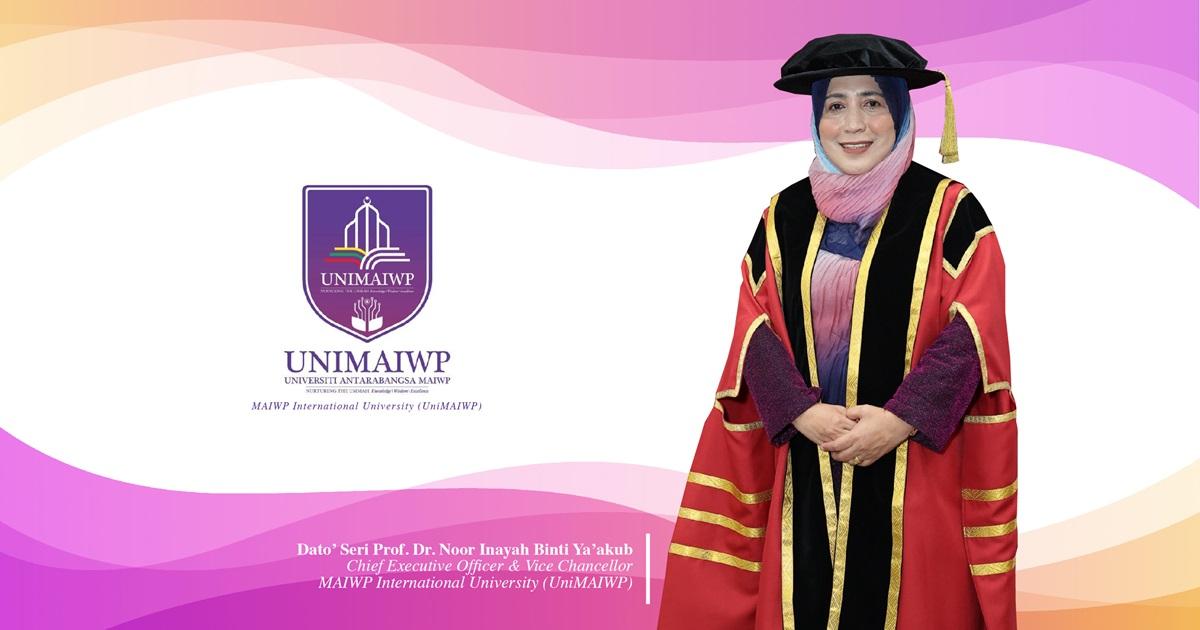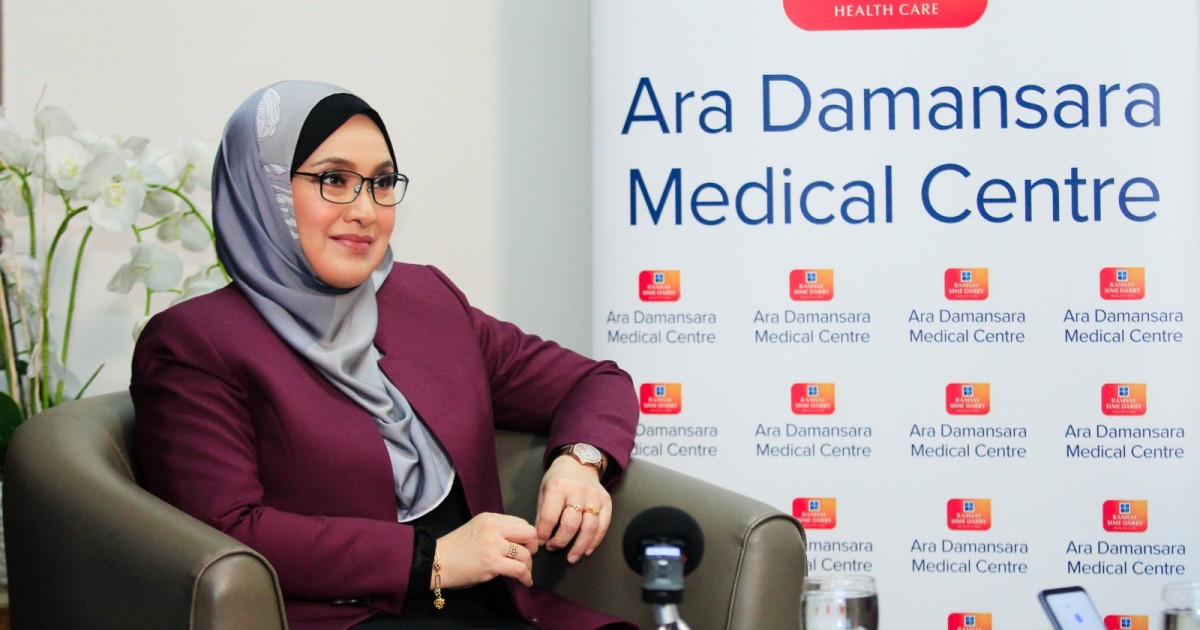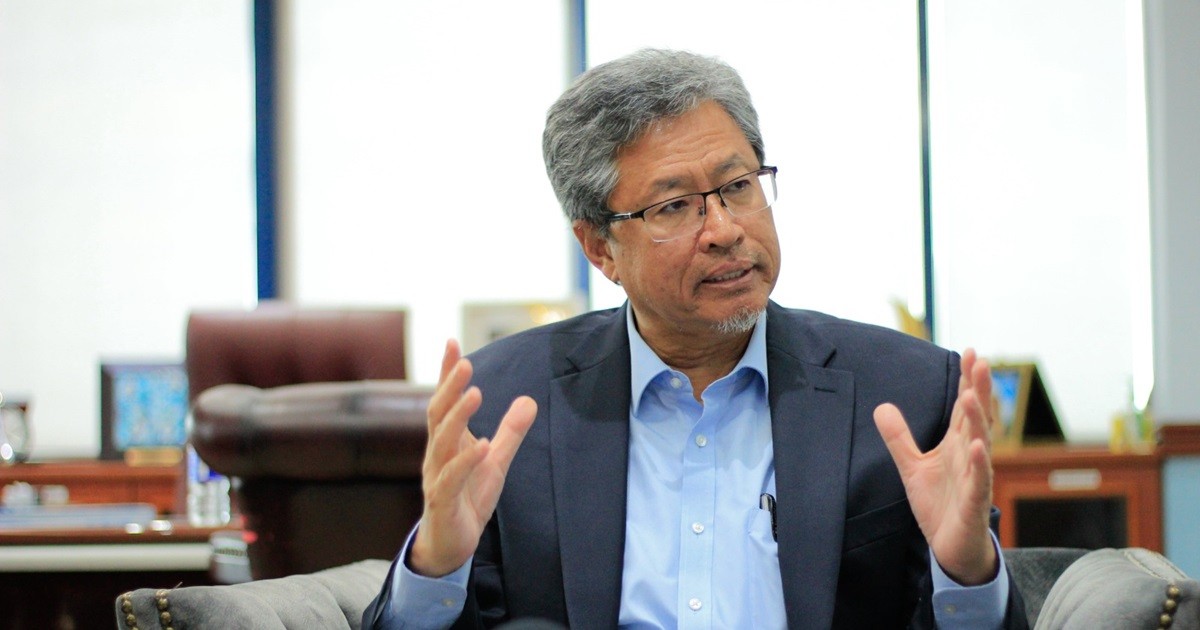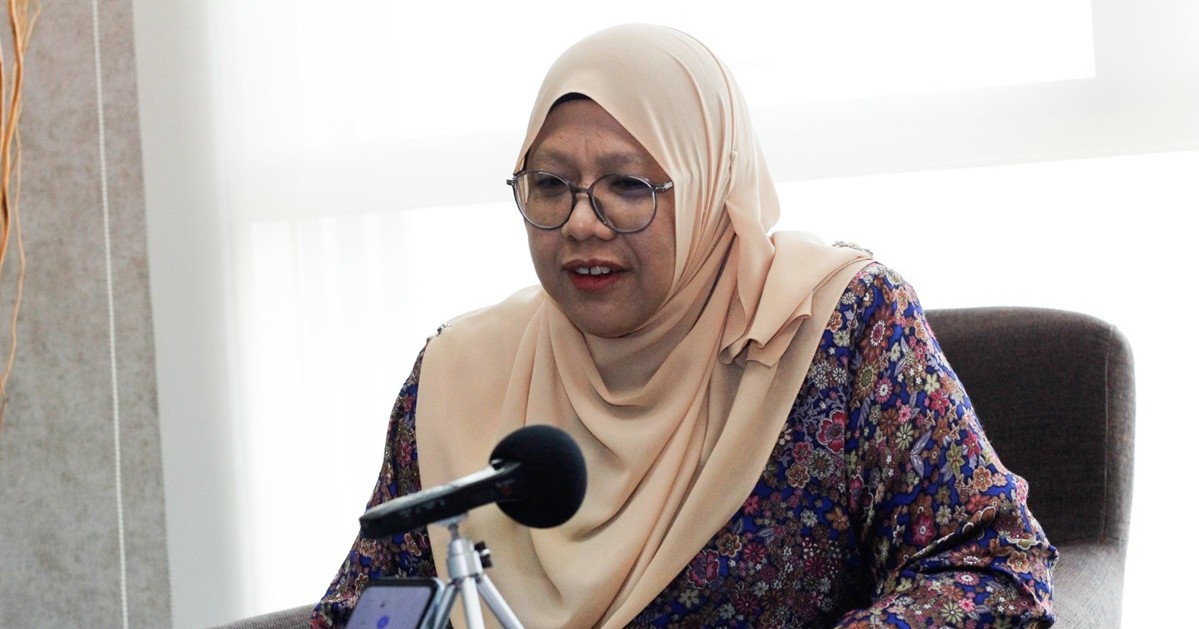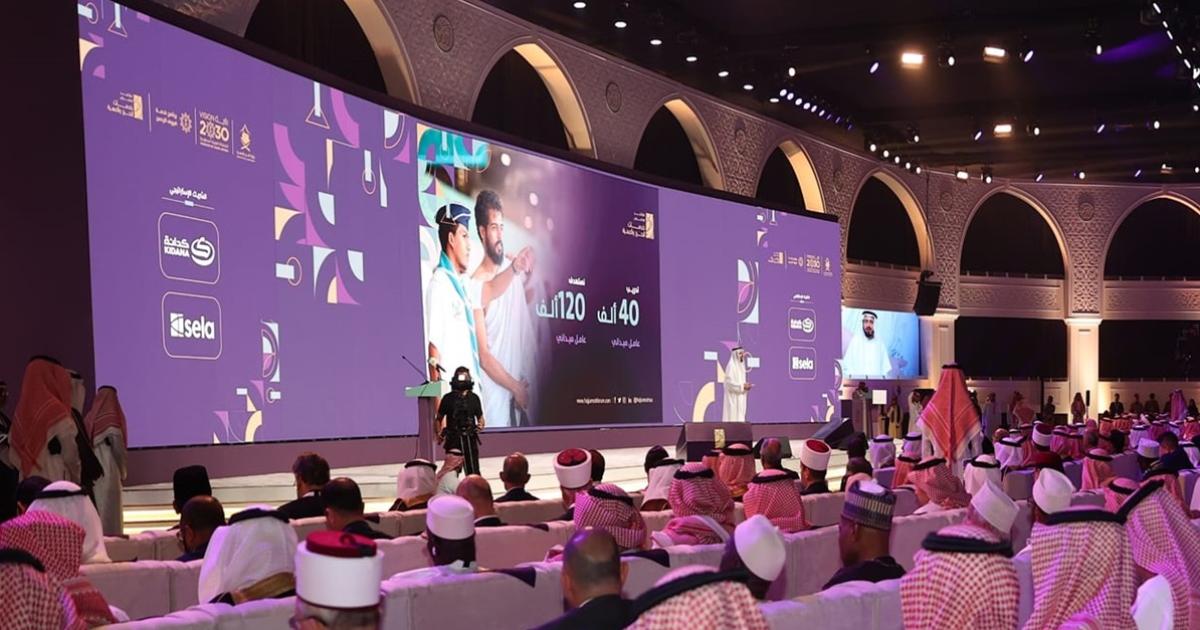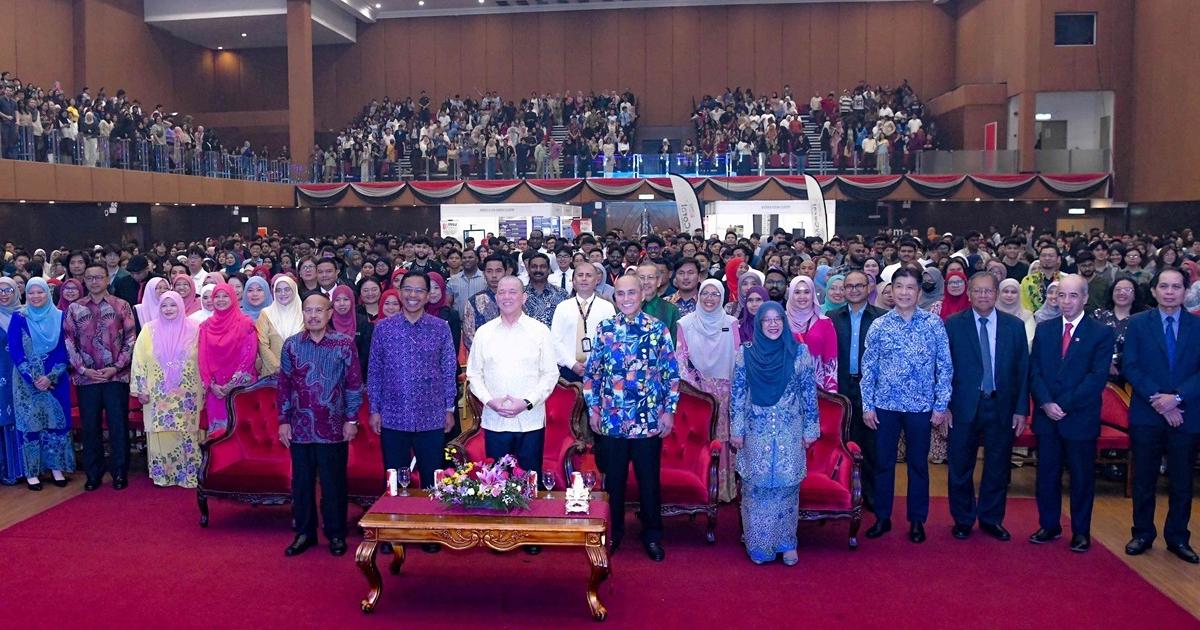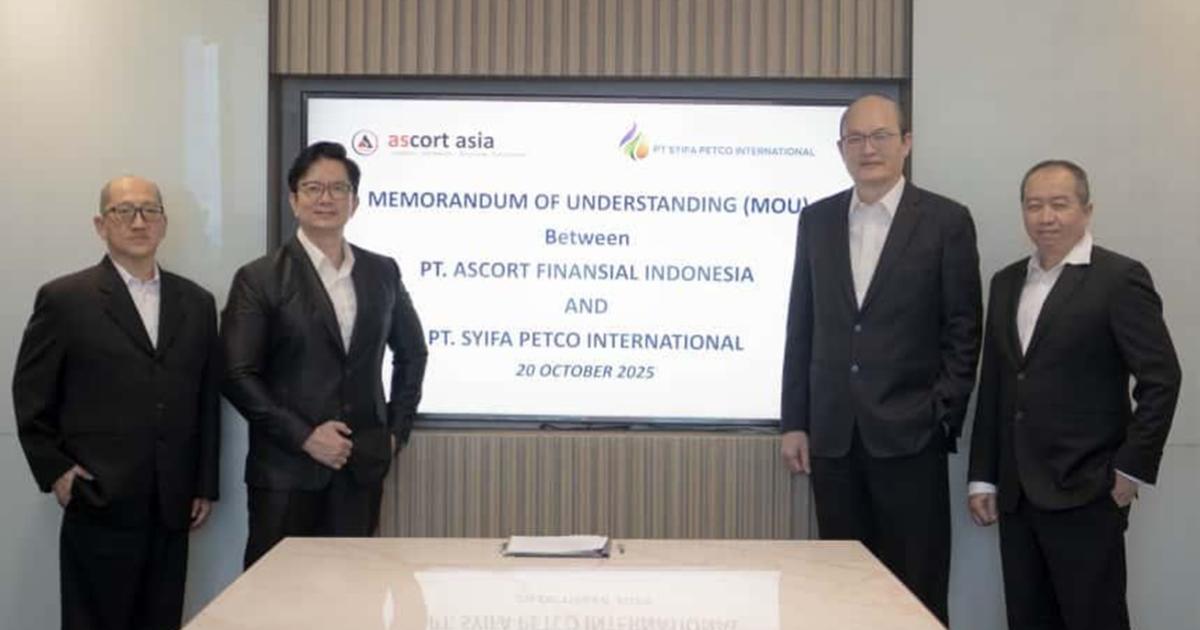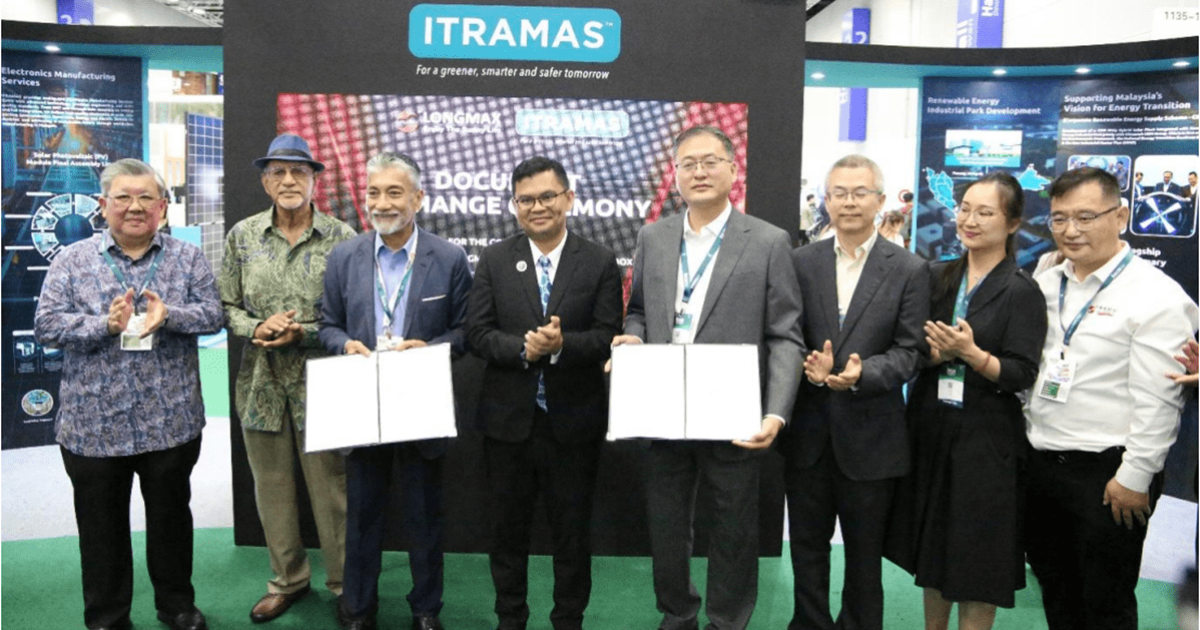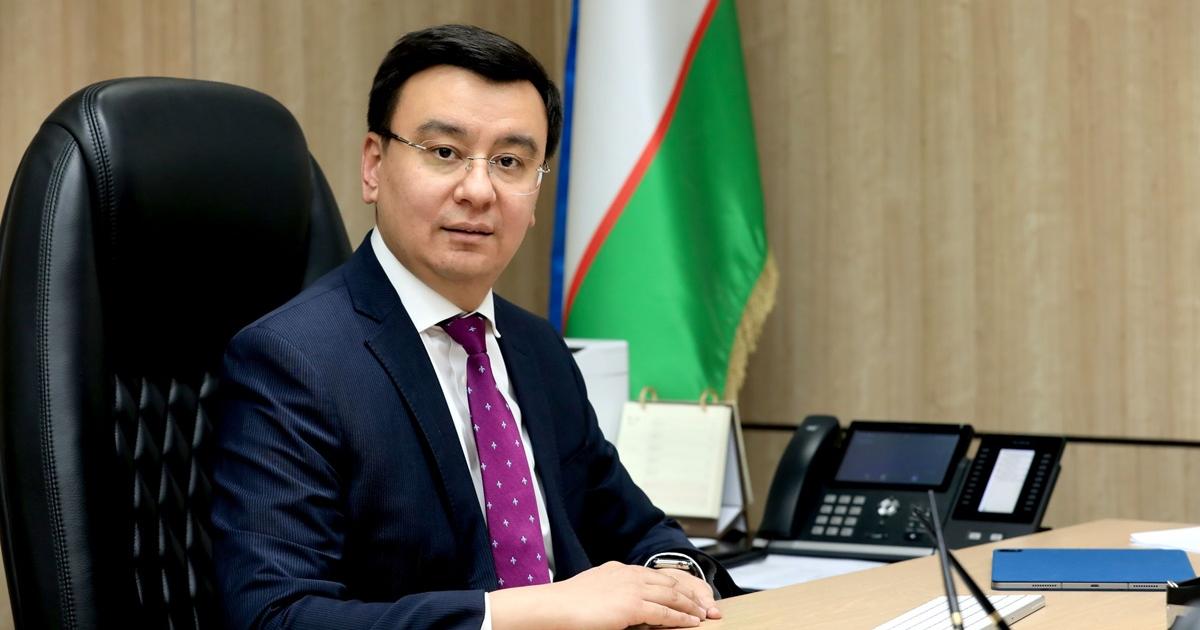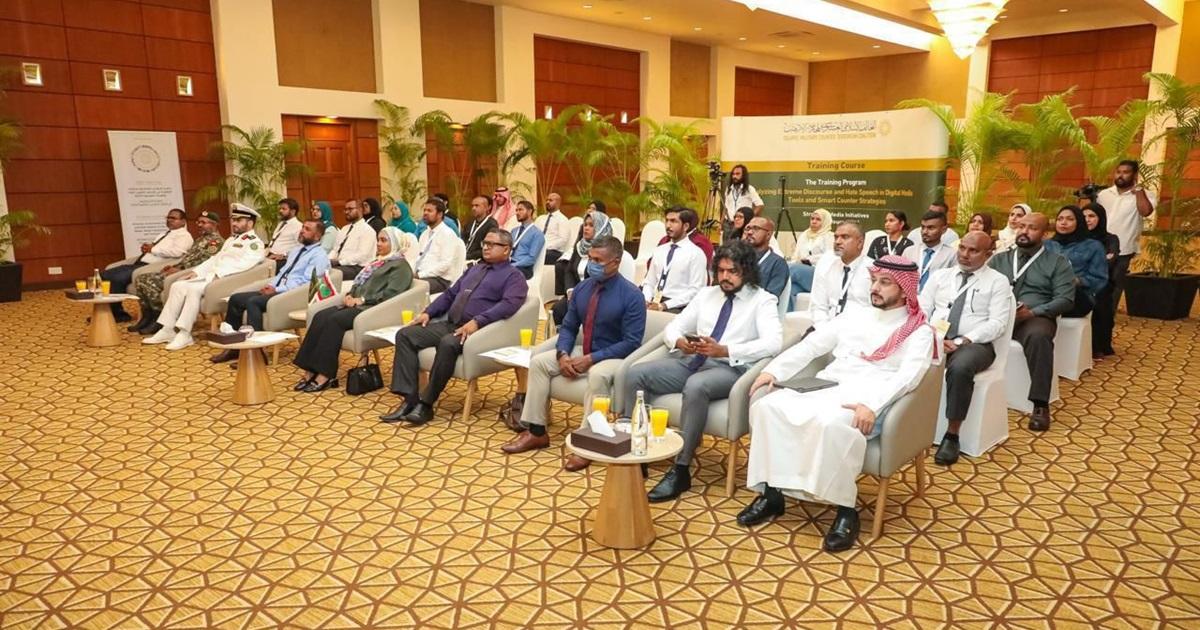
I would like to express my gratitude to you on behalf of OIC Today for giving us time for this interview. Before discussing the Institute (ITBM) and its activities, we would like to hear some of your personal reflections. What is your ultimate aim? And what is the motivation behind promoting books and working towards advancing the Malay language?
First of all, I would like to express my gratitude to OIC Today for selecting me and highlighting ITBM for this interview. I hope that all input and responses given will be useful for all of us, especially the readers of OIC Today. As the CEO of ITBM, my intention and aim obviously are a reflection of the original purpose for the establishment of ITBM itself according to its vision and mission. I would like to mention that ITBM is a government-linked agency registered with Suruhanjaya Syarikat Malaysia (SSM) with its core business in the translation and publication industry.
" ITBM was given the mandate to handle all issues regarding translation, interpretation and also knowledge transfer at all levels—nationally and internationally."
As for motivation, it is closely connected to the purpose of our establishment. ITBM was given the mandate to handle all issues regarding translation, interpretation and also knowledge transfer at all levels—nationally and internationally. In order to achieve these aims, ITBM has been working continuously to provide Malaysians with information and knowledge, especially in the field of translation.
In addition, ITBM carries the responsibility to enrich and empower literature in Malay through top-quality translation, writing and publications. In order to achieve this, ITBM has cooperated with international publishers through involvement in international book fairs. We select the best books for translation into the local language before publishing. In this manner, Malaysian readers can gain access to the best publications in the world and they are able to read the Malay version. This is how language barriers are overcome by ITBM.
The Malay language is ours (as Malays). It was the lingua franca of the Maritime Southeast Asia (Nusantara) trading world a long time ago. So, if we do not undertake this responsibility, then who will? Therefore, my aim is to ensure the purpose and interest of ITBM is geared towards Malaysians, and move forward accordingly based on current needs. It is my responsibility to ensure this. It has been proven that Malay was an international language through the discovery of Malay dictionaries in languages such as French, Dutch, Latin, Tagalog, Portuguese and others.
Since 1995, you have had more than 27 years of experience of working in ITBM. During this long period, you have held several important positions at this institute, witnessing the ups and downs, achievements and challenges there. Please share with us briefly ITBM’s history and what role it plays in the advancement of publications and language in Malaysia?
In the beginning, this institution was named the Malaysian National Institute of Translation (ITNM). The organisation was established based on the approval of a cabinet meeting in 1992 following a memorandum from the Minister of Education to be discussed in the said meeting.
The need for the establishment of a translation organization began with an idea that came up during a discussion for the National Book Policy in 1985. One of the resolutions that resulted from that discussion was to establish the National Translation Body, after which the government agreed to establish the Translation Bureau under the supervision of the Institute of Language and Literature (DBP). However, in 1992, DBP suggested that the government establish another translation entity to avoid limitations in terms of organisation and function, and being hampered by bureaucratic issues. Eventually, following a memorandum of the cabinet in 1993, the government agreed to the suggestion to establish ITNM. Although it was originally established on 14th September 1993 as ITNM, on 16th December 2011 the then Prime Minister of Malaysia announced an upgrade in the functions of ITNM and it was renamed the Malaysian Institute of Translation and Books (ITBM) and appointed the additional function of publishing books, with an emphasis on manuscripts from young Malaysian writers.
Since the early years of establishment of ITBM, it has consistently endeavoured to overcome language barriers in the dissemination of knowledge and information. Since its establishment, ITBM has translated an amount of documents equivalent to approximately 732,715 pages. Moreover, ITBM offers interpreter services which cover simultaneous interpretation, consecutive interpretation and court interpretation. In total, through this service ITBM has covered 4,657 events.
As for the field of publication, ITBM plays the role in knowledge transfer from many foreign languages into Malay or English. These published books, especially translated non-fiction books into Malay, enhance proficiency in knowledge of science, technology and mathematics among Malaysians. ITBM has translated and published more than 2,176 books in a variety of fields of knowledge such as education, management, literature, information technology, science, mathematics, religion, philosophy and others. In order to fulfil a target aimed at publishing original works, following a new mandate in 2012 ITBM had published more than 1,101 titles and the grand total of books published by ITBM comes to more than 3,277.
ITBM was established in 1993 and almost three decades have passed. What were the founding principles and motivations behind establishing this great institute? Do you think that ITBM has upheld these founding principles and maintained its values and quality?
As the only government-linked agency that offers translation services in Malaysia (although there are many other institutions, companies, universities and individuals that offer this service), ITBM maintains the role as a reliable translation institution. ITBM not only translates documents but also ensures that their quality complies with standards while adhering to strict international quality control. For example, every appointed translator should not only be proficient in the target and source languages, but should also be appointed according to proficiency in the field related to the texts they are given. In this way, we ensure that the terms utilised are suitable to the texts given.
Also, as a government-linked agency, ITBM has always been aware of its responsibilities to the translation industry by performing its functions as an ‘umbrella body’. Through this concept, every project acquired by ITBM is distributed within the industry. This means that those who are registered as ITBM translators – whether individuals, institutions or companies – ITBM acts as an operator to ensure that translation projects are distributed among industry players.
" ITBM not only translates documents but also ensures that their quality complies with standards while adhering to strict international quality control."
In addition to providing translation and language services, ITBM also implements human capital development to ensure that everyone who is involved in the industry maintains quality of translation and adapts to current needs. ITBM is very selective in choosing translators,especially those who are still relatively new to the industry and usually it will be suggested to them to take courses or attend workshops that ITBM offers.
The basic principles that remain in place are those established during its founding and are highly relevant until now. However, ITBM as an organisation needs to adapt to current needs and must make adjustments in order to remain relevant to the needs of the country, the role of technology, the current needs of customers and such like.
As you well know, we are gradually recovering from the pandemic and are now at the endemic stage. Do you have any stories to share from the pandemic? Were there any challenges that ITBM faced during the 2 year-long nationwide restrictions (MCO, CMCO)? If so, how did ITBM as an organisation overcome them?
As a government-linked agency that does not receive a regular budget under any ministry, of course ITBM faced a tough challenge. During the Movement Control Order (MCO) period, ITBM immediately comprehended the dire situation and became aware of the need for improvised operations. Among the main concerns at that time was the decrease in revenue from sales, while the company’s operating costs remained as they were before. In general, the operating costs of an organisation such as ITBM are massive compared to the services offered by individuals. We at ITBM, which offers translation, language and training services independently, were affected by the decline in demand during the implementation of the MCO.
"Despite the impact of the pandemic, ITBM continued to move actively by offering services and products online, including live streaming to customers regardless of time and demographics."
Demand for publications and book sales were also affected. School closures, limited individual movement and the large number of individuals who lost their jobs were also major factors in the decline of book sales. This was evident during the enforcement of the MCO through the implementation of cross-district, state and international border regulations, causing ITBM revenue to drop sharply. In this regard, ITBM took drastic action to remain operational throughout the pandemic.
This began with the reorganisation of operations and methods of work, be it working from home or office. There was no room for physical dealings, and office work had to be done completely online. This huge change in work culture was polemical to all quarters, having to carry out responsibilities through the methods of a new norm. Responding to the situation, ITBM took austerity measures to minimise operating costs, including withdrawing staff allowances, performance of duties by internal staff, strict control on overtime and so on. We also brought in changes in business model patterns and improvised our strategic plans by focusing on commercial demand, while social demand remained temporarily on hold. The approach of reducing production costs and maximising the return on income was aligned at all levels.
Despite the impact of the pandemic, ITBM continued to move actively by offering services and products online, including live streaming to customers regardless of time and demographics. Customers were encouraged to deal with us via phone, email or social media platforms, including the official ITBM website. Alhamdulillah, through team effort and communicating with cheerfulness, ITBM managed to face the MCO and continued to thrive.
The main services ITBM provides include translation, editing, interpreting, publishing and language courses. I wish to ask you about each of these services separately in the coming questions. Could you tell me more about the general customer experience? How efficient is the service delivery mechanism at ITBM? What is the response from service receivers (customers)?
Translation, interpretation and publication services are closely related to the duration of time, quality of service, price quoted, as well as customer service and satisfaction. Therefore, ITBM continually adapts the services provided according to customer needs and expectations. Nevertheless, the quality of service remains a priority. In the last 5 years, ITBM has implemented various work instructions so that the length of service time is shortened to ensure that services provided are in accordance with the needs and satisfaction of customers.
At the same time, translation quality control is carried out according to strict SOPs either by Customer Service staff, Project Managers, Translators, Editors or Heads of Translation Department. Each translated document goes through a rigorous review process at each stage before it is submitted to the customer. If problems or customer dissatisfaction may arise, we treat them seriously and deal with them in accordance with the practices and SOPs we provide. We are always open to suggestions by customers.
However, since the translation and vocabulary are subjective in nature, especially in terms of the choice of words used, we are always customerfriendly in terms of views and feedback. Alhamdulillah, until now we have never received any serious complaints, except for a selection of certain words and subjective terms that were dealt with simply and cordially.
In terms of translation service, the ITBM website claims to “provide quality translation services, besides guaranteeing that each task is handled assiduously”. How do you provide quality services at an affordable price? Could you enlighten us about the quality standards of the translation team, and the areas/fields the translation service covers?
ITBM is a translation body whose main business is translation services. Our advantage is that we have a large database of translators. These translators are not only proficient in various languages of the world, but also have expertise in various fields. In addition to the list of individual translators, we also have strategic partners both locally and internationally. The translation SOP as practised by ITBM is different from the practice of individual translators. At ITBM, each text to be submitted to a translator will first be evaluated by a project manager. This assessment is made to identify the objectives of the source language to the target language, as well as the field or type of text. In addition, the project manager should ensure that the original text is complete and not contain any errors so that the translation results are accurate and do not convey any wrong meaning.
" Our advantage is that we have a large database of translators. These translators are not only proficient in various languages of the world, but also have expertise in various fields."
Once these basic issues are evaluated, only then a suitable translator is appointed. Later, the translation submitted by the translator will be reviewed by an internal editor. This is the quality that distinguishes our work procedures from part-time translators who make independent translations. In addition, ITBM guarantees accountability for each translated document. This means that ITBM is prepared to be called as an expert witness if the translation of any document is disputed in court.
Compared to other competitors in Malaysia, the translation services offered by ITBM have the added advantage of each translated document being verified. This ITBM verification is recognised by the Ministry of Foreign Affairs, foreign embassies, courts, universities, as well as various government and private agencies in Malaysia and abroad.
An important aspect of editing work is that it is essential to maintain high standards. It is natural to assume that ITBM deals with highly professional and official documents (govt. and non-govt.). Therefore, editing work has to be highly professional and assiduous. How do you uphold standards and deliver a quality editing service? Is there any quality assurance within the institute? Please tell us more about the languages you cover under this service.
ITBM edits a wide variety of customers’ documents in a wide variety of languages, ranging from detailed documents such as agreement letters to basic documents such as student resumes or essays. To ensure quality editing work, ITBM practises strict editing SOPs. In addition to a large number of external editors, we also ensure the preparedness of our group of editors and senior editors at ITBM.
Most ITBM in-house editors have more than 10-15 years of experience. So, as well as being experienced, they are also supplied with various auxiliary tools in terms of reference. ITBM has vast experience and a detailed database, as we have been dealing with providing translation services since 1993.
" Through translation methods, the transfer of knowledge in various fields and great works of the world into Malay may be realised."
As a professional body in the field of translation, ITBM not only provides translation or editing services, but is also ready and able to provide consultation services (advisory services) to customers. If an original text is judged to be of poor quality, we offer the possibility of improvements to the original text (through the editing and proof-checking process). This process is gone through to ensure that the best quality of translation/ editing may be produced.
To obtain detailed information for the documents they wish to have translated, ITBM advises customers to talk to our customer service. This is to ensure that each translation produced may be adapted to the final requirements of the customer’s document (in order to ensure the precise content or official requirements, or the purpose for entities such as the court etc.).
ITBM provides interpretation services in three areas: simultaneous interpretation, consecutive interpretation and court interpretation. Could you inform us about these services and how you deal in terms of services to clients?
With regard to these three services, the following apply. Simultaneous interpretation services employ highly professional interpreters. Interpreting expertise, knowledge and experience are among the important criteria that an interpreter must possess. Simultaneous interpretation services utilise equipment requiring technical expertise, which is the Simultaneous Language System (SIS). Simultaneous interpreters also need to be given prior notice in order to ensure that the interpreters we provide are wellinformed about the events, seminars and conferences that are usually held at international level.
On the other hand, consecutive interpretation services usually include dealing with customer needs, work visits, tourism and so on. Consecutive interpreters supplied by ITBM are experienced in various fields such as economics, politics, health and bilateral relations involving formal meetings between two or more countries.
The court interpreter, however, is an interpreter who provides interpretation services to facilitate court proceedings. For criminal cases, interpreters on duty require a professional certificate registered with the Palace of Justice and ITBM. However, for other cases such as civil and Shari‘ah proceedings, the appointment of an interpreter is based on criteria set by ITBM.
In line with its mission to enlighten the nation through quality books, ITBM offers publishing services for books in Malay and other languages. ITBM publishes books in various genres such as general, literary, religious, primary and higher education, etc. Please inform us in which languages you publish books besides Malay, as well as the performance of the book publishing initiative by ITBM.
In line with its mission to enrich and empower the Malay-language literature and internationalise national works, ITBM has published 3,260 titles consisting of translation books and original books. The publication of these books includes titles of translations into Malay, titles of translations into foreign languages, and titles of original works in Malay and English.
The publication of translated books in Malay as an effort to enrich Malay-language literature was carried out through the actions of cooperation with and purchase of copyright from international publishers. Through translation methods, the transfer of knowledge in various fields and great works of the world into Malay may be realised. This is important for the general reading of the public and for scholars to obtain credible sources of reference.
The publication of books in foreign languages is also an effort to internationalise Malaysian works. ITBM has translated into other languages and published over 150 Malaysian works such as literature by Malaysian National Laureates. In addition, ITBM has also published books in the Semai and Iban languages.
The translation and publication of Malaysian works in foreign languages by ITBM is done through cooperation with foreign countries, either by governmentto-government (G2G) contracts, or collaboration with NGOs, universities, publishers and foreign associations. Some of the remarkable achievements of ITBM in relation to foreign language translation works are provided below:
Remarkable achievements:
ITBM has participated in world book fairs such as the Frankfurt International Book Fair, Bologna Children’s Book Fair, Indonesia International Book Fair, Riyadh International Book Fair and Tokyo International Book Fair. ITBM was the leading agency led by the Malaysian delegation as the Honorary Guest Country at the Tokyo International Book Fair in 2014, Indonesia International Book Fair in 2016 and Riyadh International Book Fair in 2017. ITBM now actively implements book publishing through the furnishing of publishing services to clients, largely university lecturers, government and private agencies, as well as individuals. Publication collaborations with institutions of higher education have also actively been entered into in order to publish translations of scientific books in the Malay language
Now the final question regarding your services. It is interesting to note that ITBM also offers courses/training conducted by a qualified and experienced team in the fields of language, translation and interpreting. What are the courses on offer and why are they important for novices?
Overall, the implementation of various courses and training by ITBM is to meet the needs and improve the skills of translators in accordance with the functions of ITBM to develop human capital. So, in addition to meeting the needs of translators and interpreters of ITBM, the implementation of these courses is also aimed at providing ‘added value’ to interested individuals. Moreover, this will also increase the number of translators and interpreters in Malaysia in line with the needs of the translation industry in Malaysia.
ITBM is an ‘umbrella body’ that not only provides translation services, but also ensures that translators and interpreters are adequate in number and highly-skilled in their respective fields in accordance with current requirements.
Is there any unique aspect of ITBM that you may share with us? Is there anything that you offer above your competitors? In other words, how does ITBM stand out in a competitive market?
ITBM is an agency established by the government to ensure that the transfer of knowledge may be implemented either into the country (transfer in), i.e. through the translation of books of knowledge into Malay, or abroad (transfer out) as an agent that projects and highlights Malaysian works to international readers.
ITBM offers a package of services through being a one-stop centre that provides a range of facilities from editing, translation, proof-reading to publishing. It has the advantage of being a body that is recognised by government departments, foreign embassies, as well as local and foreign universities. Documents translated and certified by ITBM are accepted in any court case. ITBM is also responsible for translation services provided and is always ready to appear in court as a witness when there is a dispute.
As an organisation, ITBM has an orderly working procedure and adheres to a quality assurance process of translation. We may always be contacted at any time required as opposed to individual translators who work alone.
What is your message to prospective clients of ITBM, especially those who are comparing the editing, translation or language services of ITBM to other competitors?
ITBM is a government-linked organisation established to handle affairs related to the field of translation in this country. Therefore, it will always regulate its quality, handling, accountability, pricing and confirmation of its translation and editing services. In fact, ITBM carries out the translation process according to methods and techniques that meet the industry standards in terms of language, meaning and context. The translation materials produced are not solely translated, but edited and reviewed to ensure that the transfer of information has been delivered properly.
Through language services, courses and training, ITBM is prepared to accept assignments involving interpretation and multilingual aides conducted by professional and trained interpreters. This group of qualified and experienced players is the main backbone in ensuring that courses and training are conducted with effective results. The same applies to ITBM services in publishing and editing books that are available for translated books and original books. In fact, we also offer publishing and editing consultation services that range from design and layout, lettering, proofreading, to producing a quality publication that customers desire.
Therefore the presence of ITBM that possesses the vision of being the leading translation body and quality book publisher is available to be fully utilised by the community. However, if a customer views the price factor as the best comparison for service, this is actually not the proper way of comparison. It is important to know that ITBM maintains quality and functions according to its SOP guidelines to ensure that clients receive the best services.
Do you believe that ITBM is successful after a three decades journey as a leading language/book institute in Malaysia? What steps ITBM should take in order to continue to thrive and become stronger in the near future and the years to come?
One’s measure of success is perhaps too subjective and may be interpreted from various aspects. Although ITBM has proven its capabilities through various successes and recognition both locally and internationally, we at ITBM should not become too complacent but always be ready to change according to contemporary needs. Therefore to remain relevant, we at ITBM cannot rest on our laurels, but instead we need to be more proactive, constantly adapting to the passage of time according to local and international requirements.
" ITBM carries out the translation process according to methods and techniques that meet the industry standards in terms of language, meaning and context."
Once again, I reiterate that ITBM must remain relevant and continue to be an ‘umbrella body’ for the translation industry in Malaysia, in line with its functions and role. It is not enough that ITBM has produced many translators, become a reference centre and translation database, but it is also necessary to become a prime example among government-linked agencies that is viable and of high quality with regard to providing services and customer satisfaction.
Do you have any partnerships with overseas organisations? Are there any plans to offer your services beyond Malaysia’s market or borders?
With regard to ITBM’s cooperation in foreign countries, the concept of cooperation may be achieved in various ways such as copyright sale, title exchange and cost sharing. Due to changing times, it is clear that cultural exchanges and international collaboration are of great importance. ITBM is well aware of this.
In ensuring that ITBM is on a par with overseas translation organisations, it remains active and is recognised as a member of the cooperation partners in the field of translation and interpretation of the American Translators Association (ATA).
ITBM is also active with overseas parties in the field of translation, publication, promotion and marketing including sales and distribution through Memorandums of Understanding (MOU) / Agreements.
Please share with us your future plans for ITBM in the next 5 years.
History has recorded how translation has been carried out since ancient times. History has also indicated how the Ming Dynasty in China produced translations, the Meiji government in Japan translated various forms of knowledge into Japanese and the West translated many books from the Muslim Civilisation. Almost every developed country gives priority to translation and it is valued by government agencies, associations, NGOs and similar. Therefore, ITBM as an agency established with a clear role and responsibilities must be empowered and strengthened through an allocation budgeted by the government, so that ITBM can perform its functions holistically and effectively.
At the same time, all ITBM employees need to be role models to ensure that ITBM becomes an agency that provides an excellent service to all Malaysians. Last but not least, by making ITBM an authoritative national translation body in accordance with its establishment, in addition to being an ‘umbrella body’, human capital development centre and translation reference centre for translators and interpreters, the continued support and encouragement of all parties is needed in establishing translation work as an important platform to improve our nation intellectually. ITBM will certainly remain relevant and be required by all Malaysians in the years to come.
International Collaborations
Country: Singapore
Foreign Institution/Organisation: Singapore
Action: Familiarising the scientific work of local universities at the international level.
Country: Japan
Foreign Institution/Organisation: Kinokuniya Co. Ltd Japan-Malaysia Association(JMA)
Action: Promoting , selling and distributing local works in Japan.
Country: France
Foreign Institution/Organisation: Editions L'Harmattan Editions les indes savantas
Action: Promoting, selling and distributing local works in France
Country: Central Asia (Uzbekistan & Kazakhstan)
Foreign Institution/Organisation: Max Voyage Tour LLC, Uzbekistan(Via Hadid Group Sdn.Bhd)
Action: Introducing Malaysia as an education and tourism centre to the younger generation from Central Asia
By making ITBM an authoritative national translation body in accordance with its establishment, in addition to being an ‘umbrella body’, human capital development centre and translation reference centre for translators and interpreters, the continued support and encouragement of all parties is needed in establishing translation work as an important platform to improve our nation intellectually.
- Business News 100
- Country News 16
- Feature News 30
- International News 151
- Interview News 35
- National News 18





